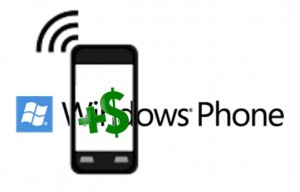Windows 10 to bring Host Card Emulation to Windows Phone
Windows Phone users have had very limited options when it comes to mobile payments. One of the few services that were available to these users, Softcard, was recently shut down after its acquisition by Google. With the closure of Softcard, many Windows Phone users have been pushed out of the mobile commerce space. That may change soon, however, as Windows 10 will be coming to the platform. The latest version of the mobile operating system will feature Host Card Emulation.
Software architecture offers a way to support mobile payments on Windows Phone
Host Card Emulation is a type of software architecture that is meant to provide virtual representation for various types of cards, such as credit and debit cards. This serves as a way to support mobile transactions made on a device, such as a smartphone or tablet. Using Host Card Emulation, devices do not need to have a secure SIM card solution and consumers do not need to use a specialized application in order to make mobile payments.
NFC-enabled Windows Phones may be able to make mobile payments in the near future
 Though Windows 10 will feature Host Card Emulation, those wishing to participate in mobile commerce on Windows Phones will have to have an NFC-enabled mobile device. NFC technology allows for digital information to be sent over short distances and this technology has become the backbone for most mobile payments platforms, which has lead to the increased availability of NFC-enabled mobile devices. Many Windows Phones have NFC capabilities, but older devices may not be equipped with NFC technology.
Though Windows 10 will feature Host Card Emulation, those wishing to participate in mobile commerce on Windows Phones will have to have an NFC-enabled mobile device. NFC technology allows for digital information to be sent over short distances and this technology has become the backbone for most mobile payments platforms, which has lead to the increased availability of NFC-enabled mobile devices. Many Windows Phones have NFC capabilities, but older devices may not be equipped with NFC technology.
Microsoft could attract more people to Windows Phone if it supports mobile commerce more aggressively
Windows Phone may not be the most popular mobile device in the world, but there are a significant number of people with these devices. These consumers have expressed interest in participating in mobile commerce, but they have had limited support for this interest. Microsoft may be able to revitalize favor for its mobile devices if it can manage to provide support for mobile payments.
Visa believes that digital tokens are making consumers more comfortable with mobile payments
Tokenization is a leading driver behind the adoption of mobile payments, according to Visa. The company’s global head of mobile products, Bill Gajda, believes that the introduction of tokenization is making the mobile payments space more secure. As such, consumers are more likely to participate in mobile commerce and businesses are feeling more comfortable about protecting the information of these consumers. More platforms are expected to adopt tokenization in the coming years, with the new Samsung Pay service supporting digital tokens when it launches later this year.
Digital tokens serve as a way to protect the financial information of consumers
Tokenization is a relatively new practice in the mobile commerce space. The process involves attributing digital tokens to financial information at the time a mobile transaction is made. Most mobile payments platforms require users to link their credit or debit card information so they can be used. When a transaction occurs, a sequence of numbers is attributed to this information, which can be used to authenticate a payment. Through this process, no financial information is actually passed from consumer to merchant, making the transaction sector for all parties involved.
Mobile payments space may grow more secure through the use of digital tokens
 Visa believes that tokenization will be a boon for the mobile payments sector, which has had a struggle with security issues over the past few years. Visa believes that more platforms will embrace tokenization as more consumers become involved in mobile payments. Apple Pay is one of the most prominent services that supports tokenization. Apple partnered with Visa in order to make use of digital tokens, which has significantly improved Apple Pay’s already considerable security features.
Visa believes that tokenization will be a boon for the mobile payments sector, which has had a struggle with security issues over the past few years. Visa believes that more platforms will embrace tokenization as more consumers become involved in mobile payments. Apple Pay is one of the most prominent services that supports tokenization. Apple partnered with Visa in order to make use of digital tokens, which has significantly improved Apple Pay’s already considerable security features.
Samsung to use Visa’s tokenization service for its new payment platform
Samsung will also be working with Visa to make digital tokens possible. Samsung Pay is slated to launch later this year and will compete with other mobile payments services that are available on the market. The success of the platform may draw yet more attention to the use of digital tokens and encourage other companies interested in mobile commerce to make use of tokenization as well.
 Though Windows 10 will feature Host Card Emulation, those wishing to participate in mobile commerce on Windows Phones will have to have an NFC-enabled mobile device. NFC technology allows for digital information to be sent over short distances and this technology has become the backbone for most mobile payments platforms, which has lead to the increased availability of NFC-enabled mobile devices. Many Windows Phones have NFC capabilities, but older devices may not be equipped with NFC technology.
Though Windows 10 will feature Host Card Emulation, those wishing to participate in mobile commerce on Windows Phones will have to have an NFC-enabled mobile device. NFC technology allows for digital information to be sent over short distances and this technology has become the backbone for most mobile payments platforms, which has lead to the increased availability of NFC-enabled mobile devices. Many Windows Phones have NFC capabilities, but older devices may not be equipped with NFC technology.
 Visa believes that tokenization will be a boon for the
Visa believes that tokenization will be a boon for the 